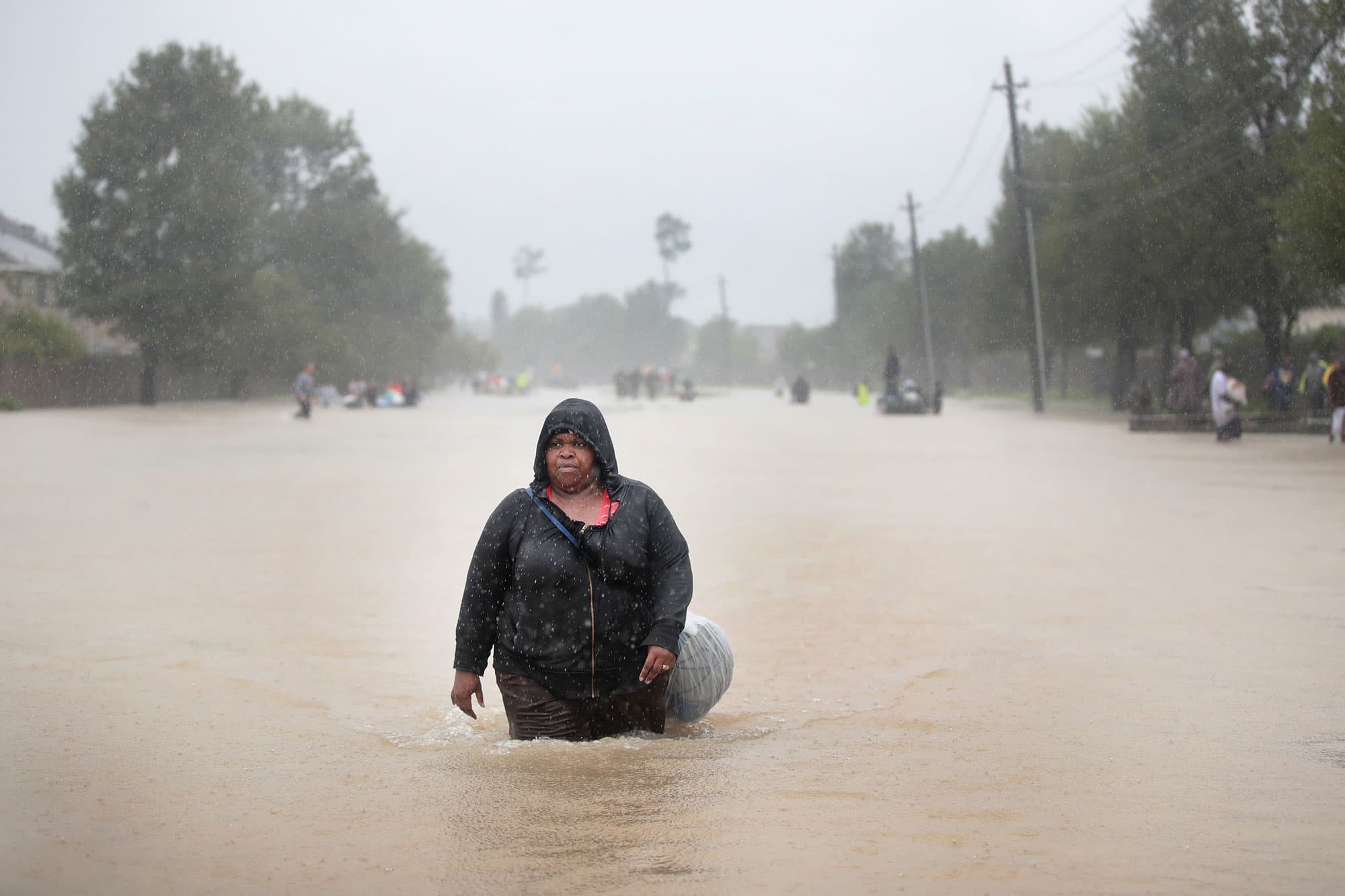Irma Maldanado stands with Sussury her parrot and her dog in what is left of her home that was destroyed when Hurricane Maria passed through on September 27, 2017 in Corozal, Puerto Rico.
Getty Images
Climate change is hindering progress on cancer prevention and increasing people’s exposure to deadly carcinogens, according to a new report from scientists at the American Cancer Society and Harvard University.
Hotter temperatures worldwide have fueled more frequent weather disasters like hurricanes and wildfires that release vast amounts of carcinogens into communities and delay access to cancer treatment.
“The prospects for further progress in cancer prevention and control in this century are bright but face an easily overlooked threat from climate change,” scientists wrote in a new report in the journal CA: A Cancer Journal for Clinicians.
When Hurricane Harvey made landfall on Texas and Louisiana in August 2017, for instance, it caused catastrophic flooding that inundated chemical plants and oil refineries and released deadly carcinogens into surrounding neighborhoods in Houston.
The half-life of some of the carcinogens detected after Harvey is up to 50 years, researchers said. Some areas in Houston have experienced higher levels of childhood leukemia driven by a high concentration of chemicals in the air.
Climate change has also triggered longer and more destructive wildlife seasons in the U.S., releasing air pollutants that remain in the air for months after the flames dissipate.
In 2018, California experienced the deadliest and most destructive wildfire season on record with a total of 8,527 fires burning nearly 2 million acres. The smoke traveled all the way to New England and air pollution in the San Francisco Bay Area was among the worst levels in the world.
People make their way out of a flooded neighborhood after it was inundated with rain water, remnants of Hurricane Harvey, on August 28, 2017 in Houston, Texas
Getty Images
Extreme weather disasters also lower cancer survival rate. One study shows that cancer patients were 19% more likely to die when hurricane declarations were made during their therapy because of treatment interruptions compared with patients who had regular access to care.
“For patients with cancer, the effects of hurricanes on access to cancer care can mean the difference between life and death,” the authors wrote.
When Hurricane Maria hit Puerto Rico in 2018 it shut down several factories that provided live-saving IV fluid bags to U.S. hospitals, causing shortages in cancer facilities nationwide.
Cancer is the second leading cause of death globally. Nearly 10 million people worldwide will die from cancer this year, according to researchers.
Some cancer treatment facilities have tried to adapt to climate threats by implementing plans to provide resilience to future flooding events.
Climate change mitigation efforts in general can benefit cancer prevention by lowering harmful greenhouse gas emissions. Scientists urged interventions like increased use of renewable energy, sustainable manufacturing and reduced intake of red and processed meat.
“Climate change is not a future threat. It is impacting cancer outcomes today and there are things we can do to respond,” said Leticia Nogueira, a scientist at the American Cancer Society and an author of the report.
Fire fighters attack the Thomas Fire’s north flank with backfires as they continue to fight a massive wildfire north of Los Angeles, near Ojai, California, December 9, 2017.
Gene Blevins | Reuters
